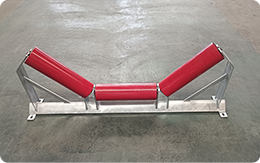 Afrikaans
Afrikaans  Albanian
Albanian  Amharic
Amharic  Arabic
Arabic  Armenian
Armenian  Azerbaijani
Azerbaijani  Basque
Basque  Belarusian
Belarusian  Bengali
Bengali  Bosnian
Bosnian  Bulgarian
Bulgarian  Catalan
Catalan  Cebuano
Cebuano  Corsican
Corsican  Croatian
Croatian  Czech
Czech  Danish
Danish  Dutch
Dutch  English
English  Esperanto
Esperanto  Estonian
Estonian  Finnish
Finnish  French
French  Frisian
Frisian  Galician
Galician  Georgian
Georgian  German
German  Greek
Greek  Gujarati
Gujarati  Haitian Creole
Haitian Creole  hausa
hausa  hawaiian
hawaiian  Hebrew
Hebrew  Hindi
Hindi  Miao
Miao  Hungarian
Hungarian  Icelandic
Icelandic  igbo
igbo  Indonesian
Indonesian  irish
irish  Italian
Italian  Japanese
Japanese  Javanese
Javanese  Kannada
Kannada  kazakh
kazakh  Khmer
Khmer  Rwandese
Rwandese  Korean
Korean  Kurdish
Kurdish  Kyrgyz
Kyrgyz  Lao
Lao  Latin
Latin  Latvian
Latvian  Lithuanian
Lithuanian  Luxembourgish
Luxembourgish  Macedonian
Macedonian  Malgashi
Malgashi  Malay
Malay  Malayalam
Malayalam  Maltese
Maltese  Maori
Maori  Marathi
Marathi  Mongolian
Mongolian  Myanmar
Myanmar  Nepali
Nepali  Norwegian
Norwegian  Norwegian
Norwegian  Occitan
Occitan  Pashto
Pashto  Persian
Persian  Polish
Polish  Portuguese
Portuguese  Punjabi
Punjabi  Romanian
Romanian  Russian
Russian  Samoan
Samoan  Scottish Gaelic
Scottish Gaelic  Serbian
Serbian  Sesotho
Sesotho  Shona
Shona  Sindhi
Sindhi  Sinhala
Sinhala  Slovak
Slovak  Slovenian
Slovenian  Somali
Somali  Spanish
Spanish  Sundanese
Sundanese  Swahili
Swahili  Swedish
Swedish  Tagalog
Tagalog  Tajik
Tajik  Tamil
Tamil  Tatar
Tatar  Telugu
Telugu  Thai
Thai  Turkish
Turkish  Turkmen
Turkmen  Ukrainian
Ukrainian  Urdu
Urdu  Uighur
Uighur  Uzbek
Uzbek  Vietnamese
Vietnamese  Welsh
Welsh  Bantu
Bantu  Yiddish
Yiddish  Yoruba
Yoruba  Zulu
Zulu different types of conveyor rollers
Understanding Different Types of Conveyor Rollers
Conveyor systems are an integral part of many industrial processes, enhancing efficiency and streamlining the movement of materials. At the heart of these systems are conveyor rollers, which are vital components that facilitate the transportation of goods along a production line. This article explores the various types of conveyor rollers, their applications, and their significance in improving operational productivity.
1. Standard Rollers
Standard rollers are the most basic type of conveyor roller, commonly utilized in a wide range of industries. They are typically constructed from materials like steel or plastic and are designed to carry light to medium-weight loads. These rollers are used in non-powered conveyor systems, where products are moved by gravity or manual effort. Standard rollers come in various diameters and lengths to accommodate different conveyor widths and loads.
2. Powered Rollers
Powered rollers are equipped with a motor that drives the movement of items along the conveyor. These rollers are particularly beneficial in automated systems, where the handling of heavier loads is required. They can be found in logistics, packaging, and assembly lines, operating under different configurations such as accumulation belts or live roller systems. The powered nature of these rollers allows for precise control over the speed and direction of the conveyor system, improving overall workflow efficiency.
3. Gravity Rollers
Gravity rollers are designed to allow products to move downhill with the help of gravity. These rollers are typically installed at an incline, enabling items to slide freely from one point to another. Gravity roller conveyors are cost-effective and energy-efficient. They are commonly found in warehouses and distribution centers where products are sorted or accumulated. As they require no power source, their maintenance costs are minimal.
4. Idler Rollers
Idler rollers are non-driven rollers that support the load on the conveyor system. These rollers are vital for ensuring that the material remains in place during transport. Idler rollers can be utilized in situations where heavy loads are present, providing stability and reducing the wear and tear of the conveyor belt. They play a crucial role in minimizing belt slippage and improving the overall lifespan of the conveyor system.
different types of conveyor rollers

In addition to standard rollers, many industry-specific applications require specialty rollers customized for unique applications. These can include
- Heavy-Duty Rollers Designed to handle extreme loads and heavy materials, often used in mining and construction. - Corrosion-Resistant Rollers Made from specially coated materials to withstand harsh environments such as chemical processing plants. - Anti-Static Rollers Equipped with properties to dissipate static electricity, these rollers are beneficial in electronics and packaging industries.
6. Roller Materials
The choice of material for rollers can significantly impact their performance and durability. Common materials include - Steel Highly durable and suitable for heavy loads, but may be prone to rust if not treated. - Plastic Lightweight and resistant to corrosion, ideal for food processing and pharmaceutical applications. - Rubber Offers excellent grip and is used primarily in applications requiring shock absorption and noise reduction.
7. Maintenance of Conveyor Rollers
Proper maintenance of conveyor rollers is crucial for ensuring operational efficiency and longevity. Regular inspections should be conducted to check for signs of wear, misalignment, and buildup of debris. Lubrication of bearings and the cleaning of rollers help prevent mechanical failures and downtime, which can be costly in a production environment.
Conclusion
Understanding the different types of conveyor rollers is essential for selecting the appropriate system for specific industrial applications. By leveraging the right kind of rollers—whether they are powered, gravity, or specialty types—companies can enhance their material handling processes and optimize productivity. As technology advances, conveyor roller designs and materials continue to evolve, promising even greater efficiency and versatility in the future. Investing in the right conveyor rollers can ultimately lead to significant operational savings and improved overall performance in manufacturing and logistics operations.
-
Revolutionizing Conveyor Reliability with Advanced Rubber Lagging PulleysNewsJul.22,2025
-
Powering Precision and Durability with Expert Manufacturers of Conveyor ComponentsNewsJul.22,2025
-
Optimizing Conveyor Systems with Advanced Conveyor AccessoriesNewsJul.22,2025
-
Maximize Conveyor Efficiency with Quality Conveyor Idler PulleysNewsJul.22,2025
-
Future-Proof Your Conveyor System with High-Performance Polyurethane RollerNewsJul.22,2025
-
Driving Efficiency Forward with Quality Idlers and RollersNewsJul.22,2025





























